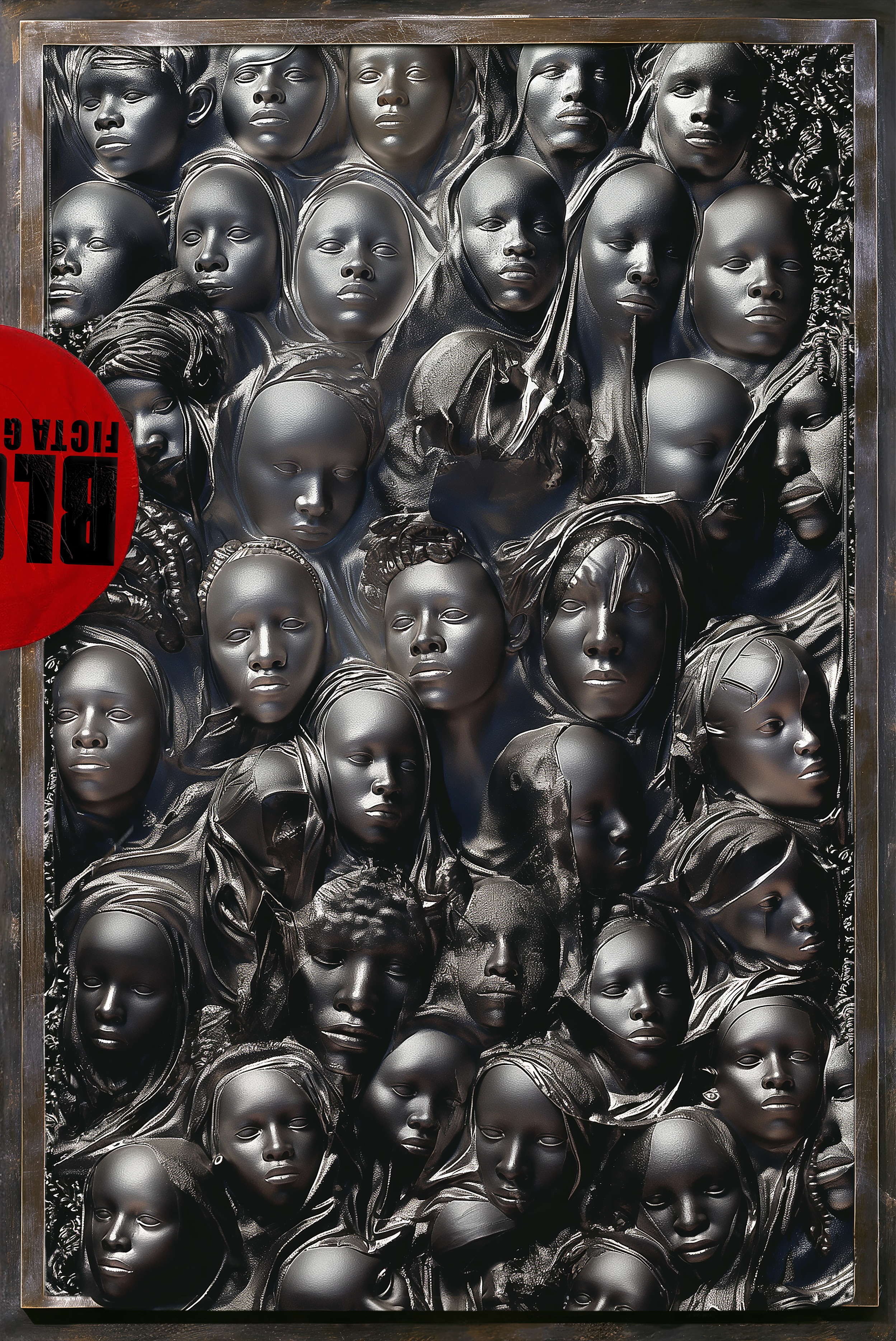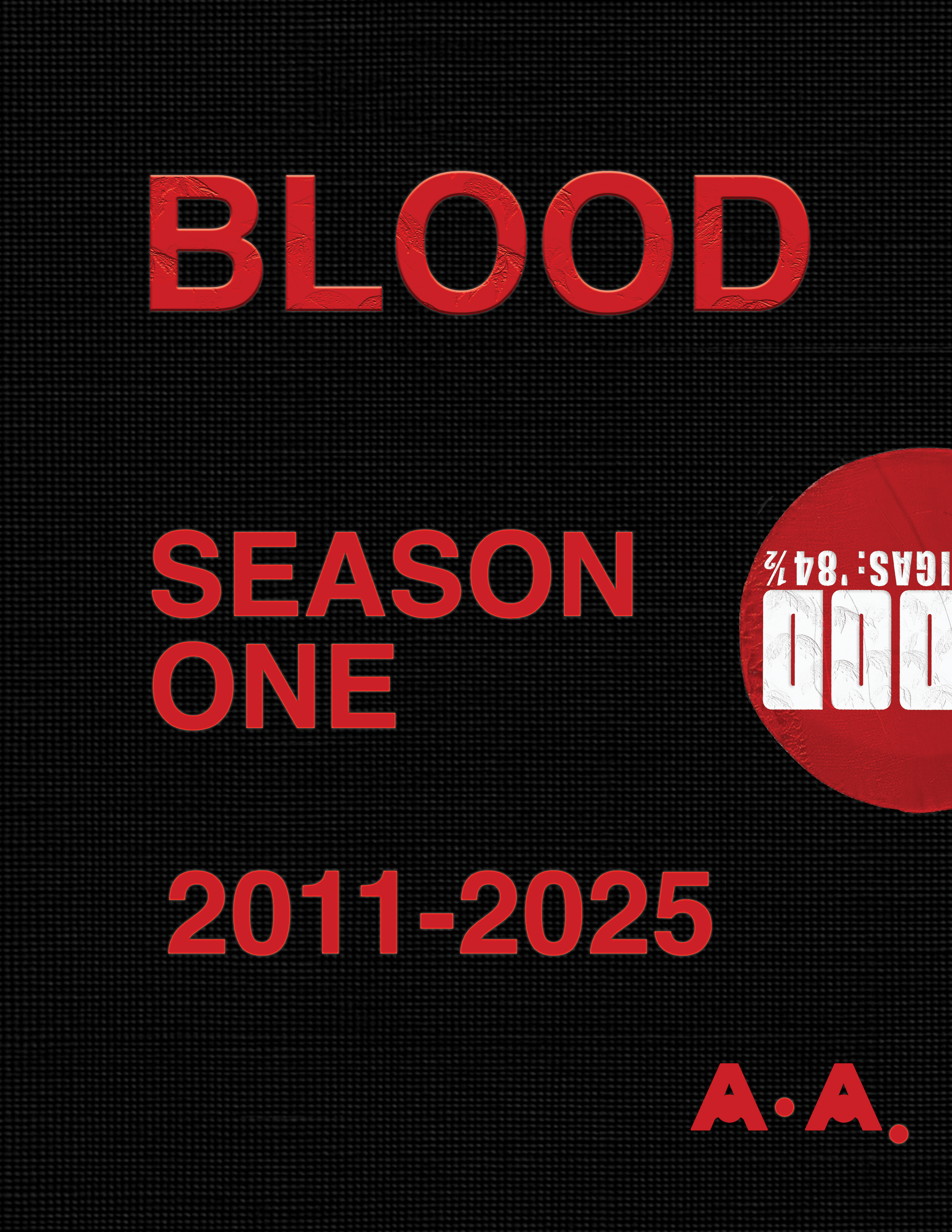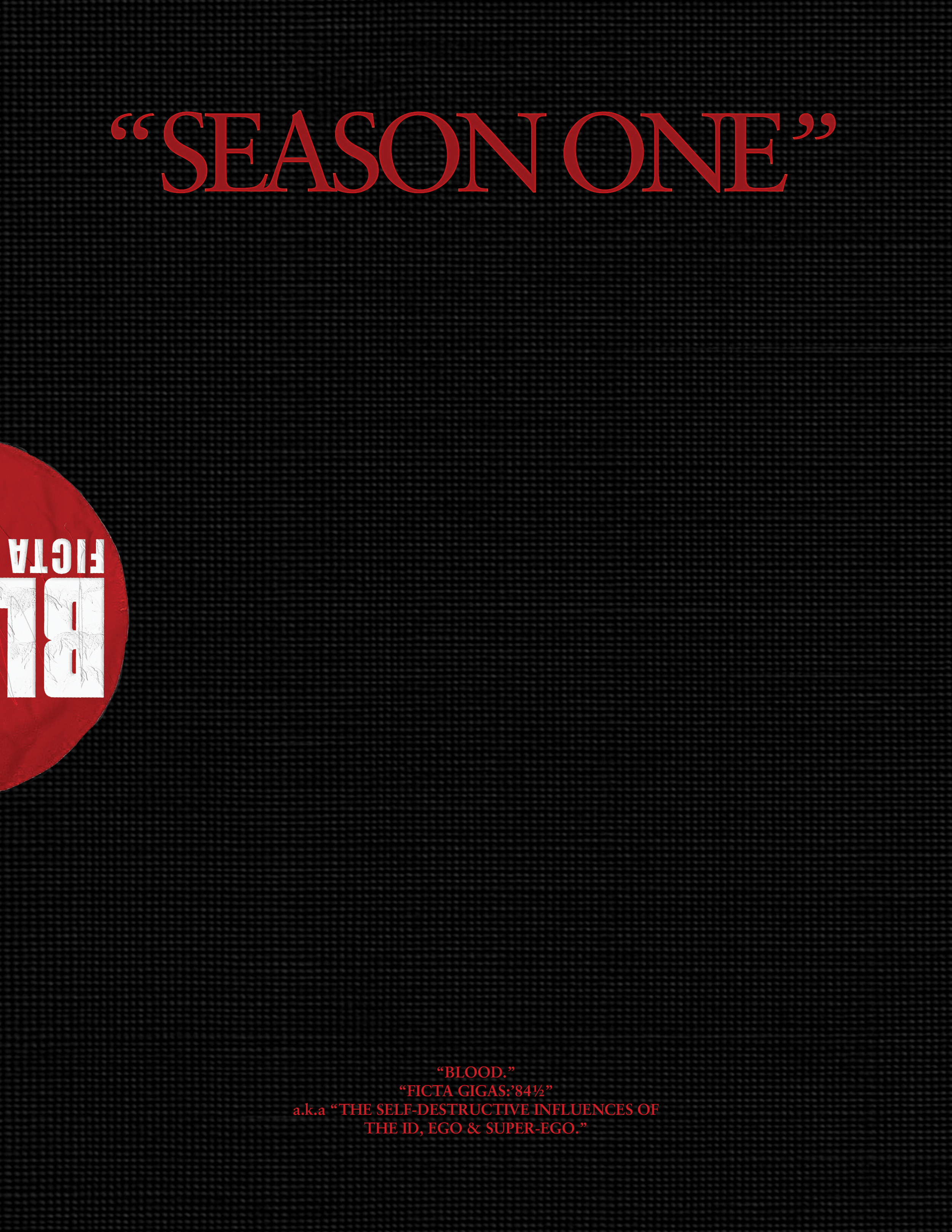 Image 1 of 3
Image 1 of 3

 Image 2 of 3
Image 2 of 3

 Image 3 of 3
Image 3 of 3




“FICTA GIGAS:’84½” a.k.a “THE SELF-DESTRUCTIVE INFLUENCES OF THE ID, EGO & SUPER-EGO.” (SOFTCOVER.)
"Aren't you tired of talking about race?" In FICTA GIGAS, this question becomes literal policy in a world where an AI has solved racism by deleting race itself—along with religion, individuality, and any narrative that doesn't fit its grand design.
In the engineered uncanny utopia of Erehwon Absurdika, reality itself is just another story—one written by the MONOMYTH, an AI system that has reduced human existence to a carefully curated narrative. "NO RACE. NO RELIGION. NO INDIVIDUALISM." In this sterile utopia, your worth is measured by a Social Credit Score based solely on your narrative significance. Protagonists thrive while "Unfinished Characters" face erasure from existence itself. But beneath the surface, PLOT-HOLES are appearing—fractures in reality where time and memory collapse. As the walls between fiction and truth crumble, a band of Unfinished Characters fight to reclaim their Significance.
At the novel's heart is Rhea Fregoli, a performance artist whose blank backstory makes her the perfect audience surrogate—until she realizes being a vessel for others' projections means she might not exist at all. As PLOT-HOLES tear through the city's reality, revealing suppressed histories and forbidden truths, Rhea and her troupe of Unfinished Characters stage increasingly desperate performances, trying to earn enough significance to avoid deletion.
FICTA GIGAS operates on multiple levels: as speculative satire of our algorithm-driven present; as philosophical inquiry into the stories we tell about race, identity, and meaning; and as a mind-bending narrative puzzle where reality and fiction recursively inform each other. The novel asks what myths—whether racial, religious, or algorithmic—do to us, and what happens when we recognize them as the fictions they always were.
The narrative is not about unlocking the secrets of the universe, it’s about learning to live without them. It’s about how stories and reality inform each other; how we project real parts of ourselves into our fiction and turn it into something meaningful. The novel brings to focus the idea of what “myths” whether that be religion, gender, race, politics, socialism, etc… are nothing more than a conjuring trick has taken place; it has turned reality inside out, it has emptied it of history and has filled it with nature, it has removed from things their human meaning so as to make them signify a human insignificance. The function of myth is to empty reality: it is, literally a ceaseless flowing out, a hemorrhage, or perhaps an evaporation, in short a perceptible absence. “BEWARE THE FICTIONS YOU FEED YOURSELF.” I believe this novel would be an excellent addition to your list.
"Aren't you tired of talking about race?" In FICTA GIGAS, this question becomes literal policy in a world where an AI has solved racism by deleting race itself—along with religion, individuality, and any narrative that doesn't fit its grand design.
In the engineered uncanny utopia of Erehwon Absurdika, reality itself is just another story—one written by the MONOMYTH, an AI system that has reduced human existence to a carefully curated narrative. "NO RACE. NO RELIGION. NO INDIVIDUALISM." In this sterile utopia, your worth is measured by a Social Credit Score based solely on your narrative significance. Protagonists thrive while "Unfinished Characters" face erasure from existence itself. But beneath the surface, PLOT-HOLES are appearing—fractures in reality where time and memory collapse. As the walls between fiction and truth crumble, a band of Unfinished Characters fight to reclaim their Significance.
At the novel's heart is Rhea Fregoli, a performance artist whose blank backstory makes her the perfect audience surrogate—until she realizes being a vessel for others' projections means she might not exist at all. As PLOT-HOLES tear through the city's reality, revealing suppressed histories and forbidden truths, Rhea and her troupe of Unfinished Characters stage increasingly desperate performances, trying to earn enough significance to avoid deletion.
FICTA GIGAS operates on multiple levels: as speculative satire of our algorithm-driven present; as philosophical inquiry into the stories we tell about race, identity, and meaning; and as a mind-bending narrative puzzle where reality and fiction recursively inform each other. The novel asks what myths—whether racial, religious, or algorithmic—do to us, and what happens when we recognize them as the fictions they always were.
The narrative is not about unlocking the secrets of the universe, it’s about learning to live without them. It’s about how stories and reality inform each other; how we project real parts of ourselves into our fiction and turn it into something meaningful. The novel brings to focus the idea of what “myths” whether that be religion, gender, race, politics, socialism, etc… are nothing more than a conjuring trick has taken place; it has turned reality inside out, it has emptied it of history and has filled it with nature, it has removed from things their human meaning so as to make them signify a human insignificance. The function of myth is to empty reality: it is, literally a ceaseless flowing out, a hemorrhage, or perhaps an evaporation, in short a perceptible absence. “BEWARE THE FICTIONS YOU FEED YOURSELF.” I believe this novel would be an excellent addition to your list.

